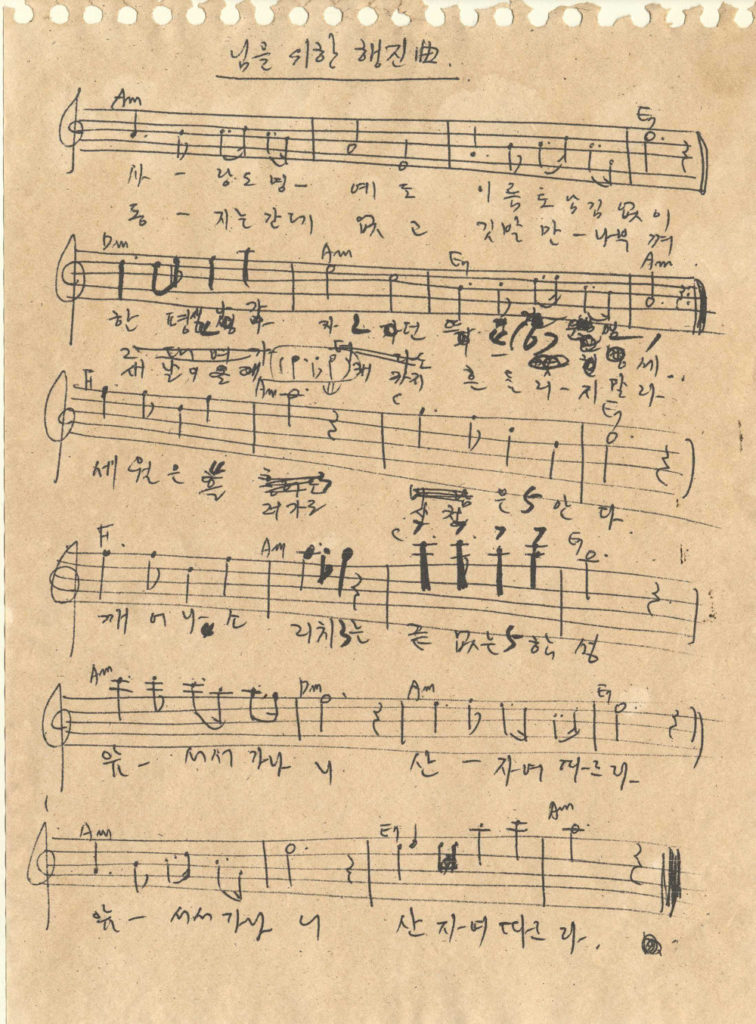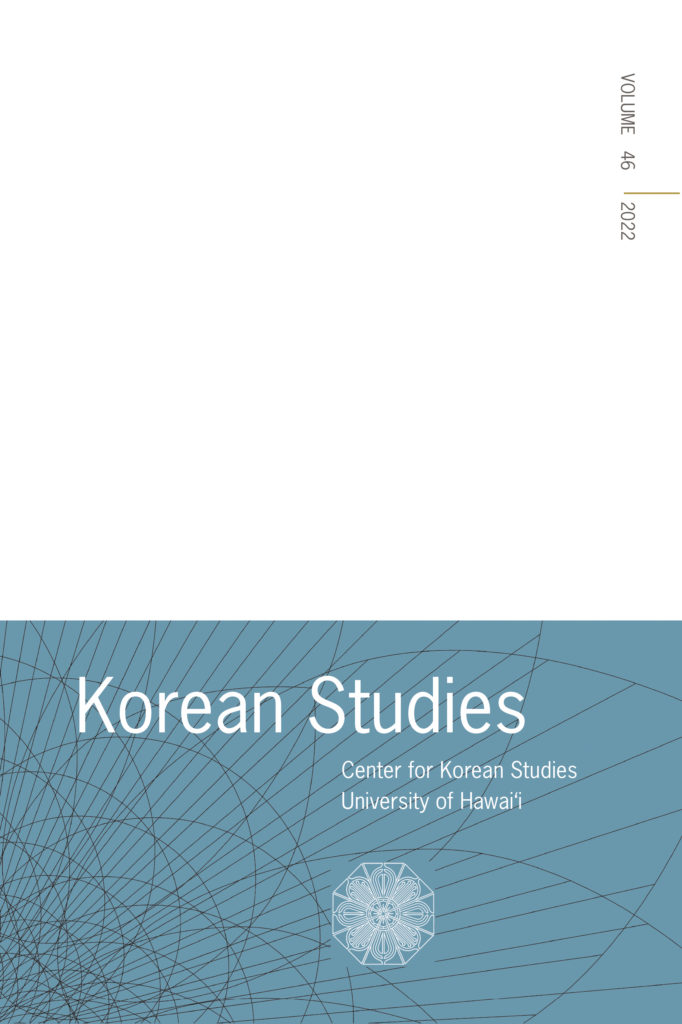This year’s issue of Korean Studies (Volume 46) features a special section, “Music That Moves: Sonic Narratives in Modern Korea,” guest edited by Dafna Zur and Susan Hwang. The six articles that comprise this section explore transnational religiosity and Cold War politics, resistance in protest songs, North Korea’s sonic culture, South Korea’s use of K-pop in marketing and more.
Here guest editors Dafna Zur and Susan Hwang discuss the “Music that Moves.”


Left: Susan Hwang (courtesy of author). Right: Dafna Zur (Do Pham / Stanford University)
University of Hawai‘i Press: Tell us how this special section came together.
Zur and Hwang: We have been working together for the last few years as members of the LLC Korean Forum at the Modern Language Association. When it was our turn to brainstorm panel ideas for the MLA’s annual convention, we landed on music. We realized that we had a lot in common—we were both trained as literary scholars, but we wanted to explore the relationship between music and text. Our panelists presented their work in January 2021, and this volume is a result of that panel.
UHP: This special section engages with Korean music from a multi-disciplinary perspective. Why was this important to you?
Editors: Although the contributors in our special section come from different disciplinary backgrounds—musicology, ethnomusicology, history, literature, and cultural studies—music is our common denominator. We gathered a group of scholars who were keen on engaging with different musical forms—music as scores, as voices coming from the throats of children and protesters, as part of mass consumption, as background tracks to epic narratives—and who were willing to cross disciplinary boundaries and think about music as a manifestation of cultural and historical phenomena. As many of us were scholars of text rather than music, we often found ourselves outside our comfort zone—at one point, Dafna consulted her father, a composer, on her musical analysis (he is acknowledged in the footnotes!). We hope to encourage others to take up the study of music in its multiple forms.

UHP: In addition to multiple disciplines, the articles cover a substantial period of time, from the colonial period to the 21st century. Overall, do you see any patterns in Korean music over time? Or perhaps change or conflicts?
Editors: Our project demonstrates that a broad historical perspective can highlight both the transnational and local qualities of Korean music. We cover, for instance, the impact of Western music on Korean composers who wrote children’s songs, the mobilization of affect through Christian hymns and sounds of war, and the revitalization of kut in modern practice of “folk” culture and the branding power of K-pop. Besides bringing attention to the qualities of music across time and in different geographic locations, our project also stays attentive to the richness of musical genres—songs, sound effects, accents and vocalization, background tracks—that lend themselves to textual and musical analysis.

UHP: Why, in your opinion, is this special section important now?
Editors: For the last 15-20 years, Korean studies has enjoyed a surge of interest in the study of Korean culture and language, especially among high-school and college students. This success is largely thanks to the explosive popularity of K-pop around the globe. We continue to witness the power of music, such as civic engagement and political solidarity, that emerges from K-pop fandom. Two interrelated questions that the papers in this special section address are, how did the forces of social change and technological innovations impact the way people engage with music, and how did music as an affective force facilitate paradigmatic shifts in modern Korean history? It was important for us to show alternative forms of Korean music that have contributed to its enduring power.
UHP: How do you hope readers will utilize this special section in their own work?
The articles in the special section deal with a wide range of genres and sonorities from different historical periods. There are YouTube links to music in many of them. We hope scholars will find our articles accessible and teachable, and that the articles will contribute to our ongoing efforts to contextualize the current moment of Korean music’s success.

Table of Contents
Editor’s Note
Cheehyung Harrison Kim
Special Section
Music That Moves: Sonic Narratives in Modern Korea
Introduction to the Special Section
Dafna Zur and Susan Hwang
When Songs Don’t Work: Western Tonalities and Korean Breath in Children’s Songs of the Colonial Period
Yoon Joo Hwang and Dafna Zur
From Waifs to Songbirds: The World Vision Korean Orphan Choir
Katherine In-Young Lee
From McArthur’s Landing to Trump’s Fire and Fury: Sonic Depictions of Struggle and Sacrifi ce in a North Korean Short Story, Film, and Opera
Alexandra Leonzini and Peter Moody
What’s for Sale? Selling Songs and K-pop Idols in Korean Commercials
Roald Maliangkay




